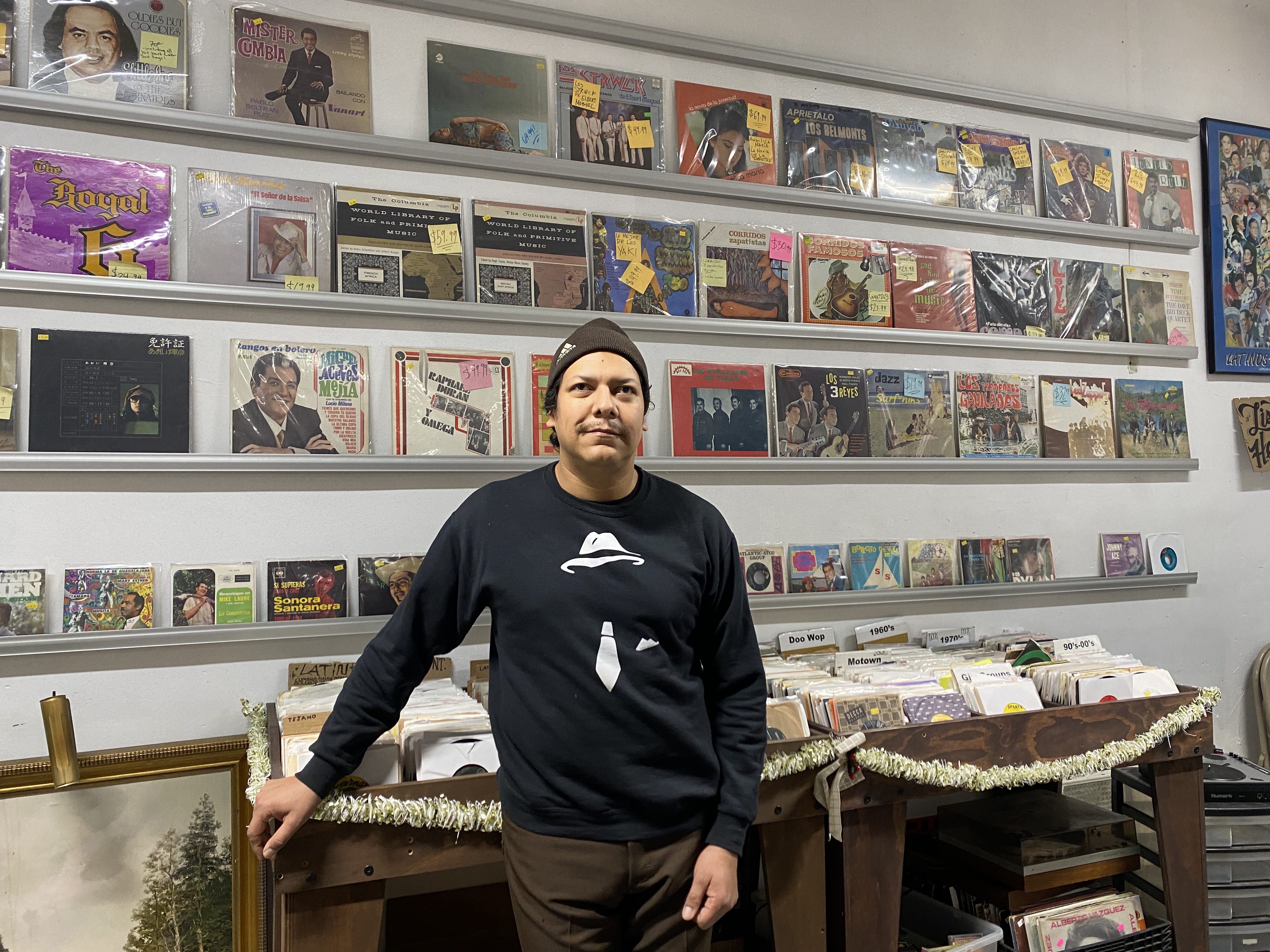Salsa helps drive Latin music higher
The Latin Grammys are coming: Nominations will be out September 24, and the 15th annual broadcast will be held in Las Vegas on November 20.
The popularity of the show is a sign that the Latin music market is strong, and getting stronger. One category within Latin music — salsa, or “tropical” as it is designated in the awards — is gaining more fans among non-Latinos in the U.S., and abroad as well.
All one has to do is to Google the phrase “I want to go salsa dancing tonight” in any major American city, and multiple venues for social dancing will pop up. They often feature live, multipiece bands, and are packed several nights per week with dancers spinning, dipping and flipping their partners across the floor.
Learning to do this flashy, athletic and intimate dance form takes time and money.
Sarah Riddle owns The Viscount studio in Portland, Oregon. She’s done good business teaching salsa to Latinos and others — even through the recession. “People are struggling and they want to spend money on things that feel good,” says Riddle, “and so there’s an increase in that market.”
Here’s Sarah Riddle demonstrating various styles of salsa. In order: ballroom, Puerto Rican, Cuban, and L..A. styles. (Video cred: Mitchell Hartman)
The Latin market — not just salsa from the Caribbean (which also includes salsa variants bachata, timba and kizomba), but also Mexican regional and pop music — is one of the bright spots for the industry. Latin digital-music sales were up twice as much as the rest of the music market last year (14 percent vs. 7.6 percent), according to the Recording Industry Association of America.
Music marketing consultant Peggy Dold of Navigation Partners has penned the “Latin Corner” blog for the Association of Independent Music Producers. She points out that this a promising market for a struggling music industry. The U.S. Latino population skews young; Hispanics listen to radio, use online streaming services such as Pandora and watch music and dance videos, more than other demographic groups.
Salsa is now expanding across the U.S. and overseas, with flashy competitions hosted in several hundred cities now. According to Albert Torres, a Los Angeles–based salsa promoter, interest and participation is growing, from North America and South America to Europe, Asia and North Africa. He regularly travels to Japan, Germany, Morocco, Turkey and other countries to host Salsa Congresses.
“I don’t care why people walk in the door — whether it’s to watch, to dance or to perform in a show themselves, it just gets into your core,” says Torres. “All these African beats that came over from 1533 until now — sooner or later you have to put your seat belt on because you’re hooked.”
At the annual Salsa & Bachata Congress in Portland, Oregon, in June, partner teams from as far away as Idaho and British Columbia spent hundreds of dollars each on travel and sequined costumes to compete. Latinos and non-Latinos were represented among the top competitors. The winners — including Erika Lachen Meier and Malik Delgado — will go on to compete at Torres’s World Latin Dance Cup in Miami in December.
“I go out there onstage, and when I come back and remember nothing, that’s when I know it went well,” said Lachen Meier after the competition. Delgado added: “It’s great just to feel the energy, and next thing I know her foot’s up in the air and she’s in a dip and I’m asking, ‘Are we done?’”
Latin rap artist Carsello was in town from New York, showcasing his “urban salsa” — a crossover genre — at the Portland event. “Now we’re taking salsa to a pop-culture level, by English-rapping, but with traditional salsa music,” he said. “Salsa is here to stay, and it’s just going to get bigger.”
Click the video player at the top of the article to see Sarah Riddle giving reporter Mitchell Hartman a dance lesson at The Viscount studio in Portland, Oregon. (Video cred: Cliff Rees)
There’s a lot happening in the world. Through it all, Marketplace is here for you.
You rely on Marketplace to break down the world’s events and tell you how it affects you in a fact-based, approachable way. We rely on your financial support to keep making that possible.
Your donation today powers the independent journalism that you rely on. For just $5/month, you can help sustain Marketplace so we can keep reporting on the things that matter to you.


















